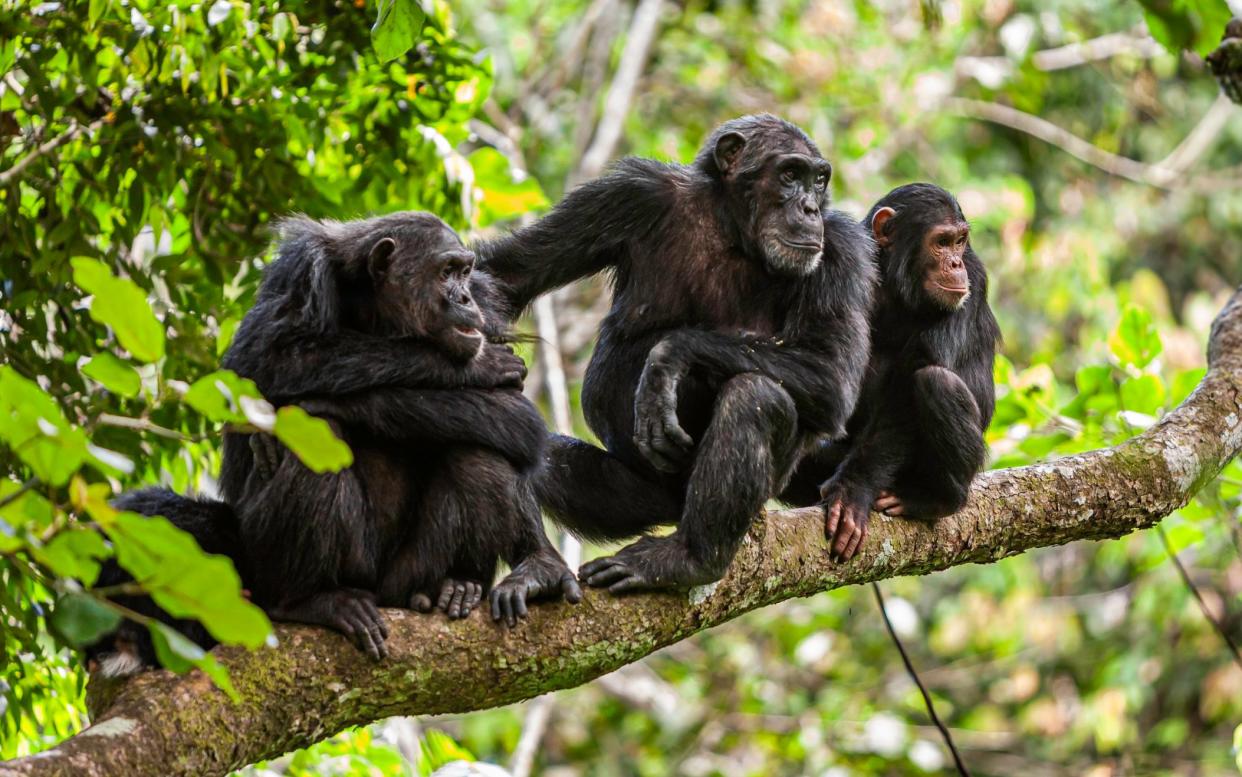Apes remember friends they haven’t seen for 26 years, study finds

Apes can recognise photographs of their friends 26 years after last seeing them, making them the animals with the longest social memory outside of humans, scientists have found.
Researchers resolved to test the memories of zoo chimpanzees and bonobos after noticing that animals seemed to recognise them when they visited, even if they’d been away for years at a time.
“They’re excited to see you again,” said Dr Christopher Krupenye, senior author of the study and assistant professor at Johns Hopkins University in Baltimore.
“You have the impression that they’re responding like they recognise you and that to them you’re really different from the average zoo guest.”
The team worked with chimpanzees and bonobos at Edinburgh Zoo in Scotland, Planckendael Zoo in Belgium and Kumamoto Sanctuary in Japan.
Infrared eye-tracking cameras
For the experiment, the apes were given a treat of a juice drink and while they sipped it were shown images of former zoo-mates and family members, alongside pictures of strangers.
The apes pictured had either left the zoos or died, and had not been seen for between nine months and 26 years.
The team used infrared eye-tracking cameras to record where the animals gazed and found they looked significantly longer at their former groupmates, no matter how long they had been apart, paying special attention to long-lost friends.
In one case, a bonobo named Louise had not seen its sister, Loretta, or nephew, Erin, for more than 26 years. But when researchers showed Louise their images, the bonobo’s eyes homed in on the photos.
The results suggest great ape social memory could last beyond 26 years, the majority of their 40 to 60-year average lifespan, making their abilities comparable to those of humans, which begin to decline after 15 years but can persist for as long as 48 years after separation.
Cognitive mechanisms
“These animals have a rich recognition of each other,” said Dr Laura Lewis, a biological anthropologist and comparative psychologist at University of California, Berkeley.
“This pattern of social relationships shaping long-term memory in chimpanzees and bonobos is similar to what we see in humans; that our own social relationships also seem to shape our long-term memory of individuals.”
She added: “We tend to think about great apes as quite different from ourselves, but we have really seen these animals as possessing cognitive mechanisms that are very similar to our own, including memory. And I think that is what’s so exciting about this study.”
Only dolphins have been shown previously to have long-term social memory, recognising vocalisations of pod-mates for up to 20 years.
The research was published in the journal Proceedings of the National Academy of Sciences.

